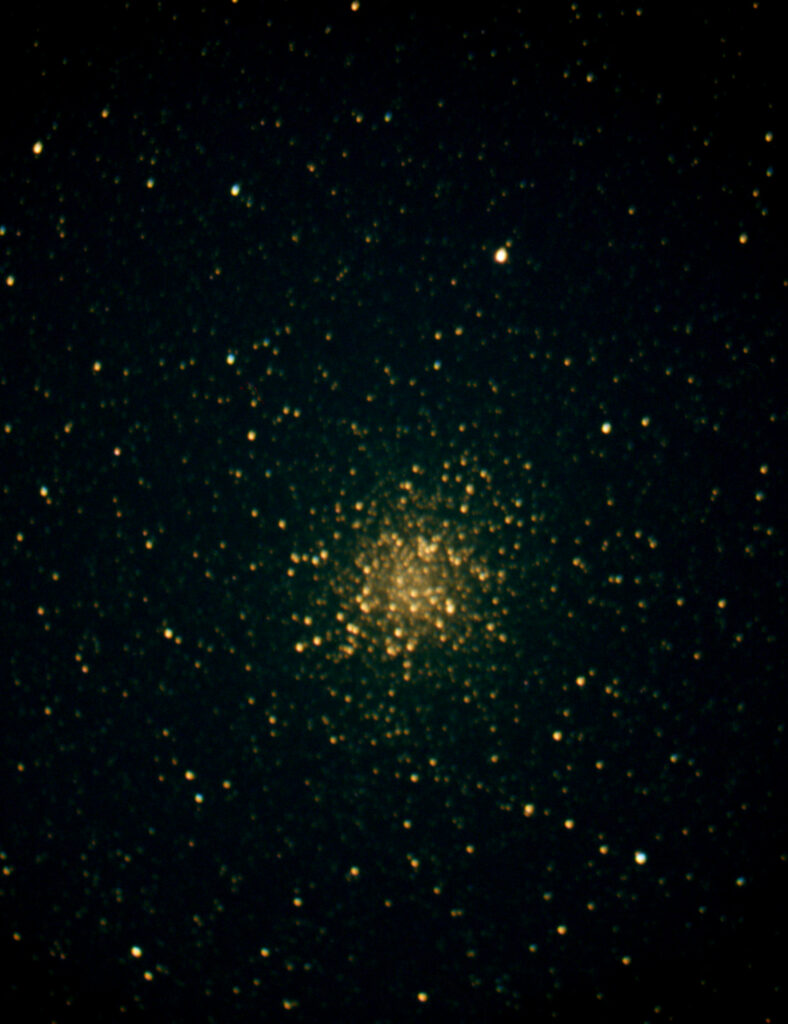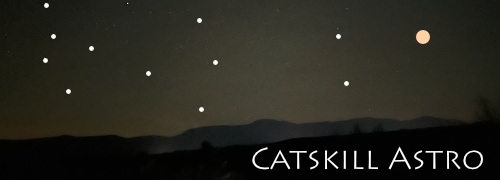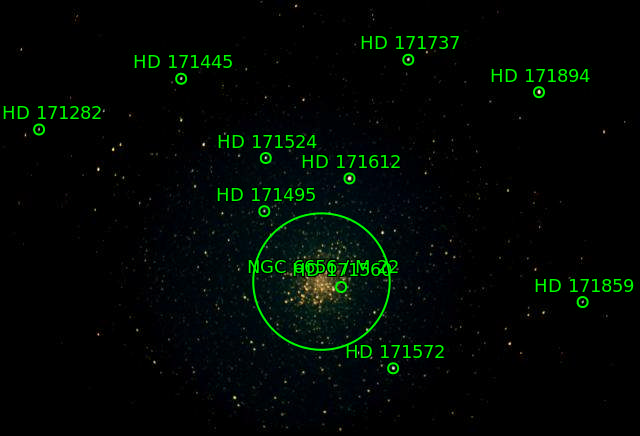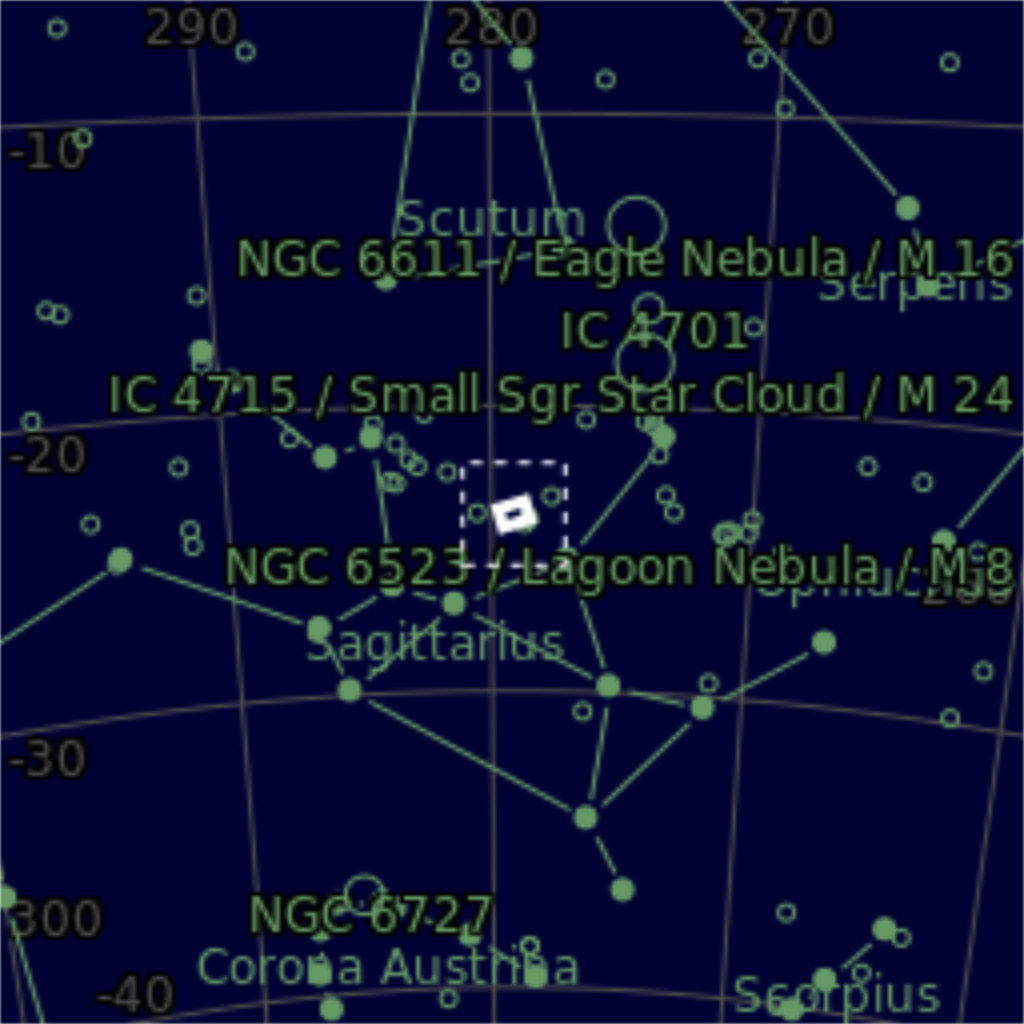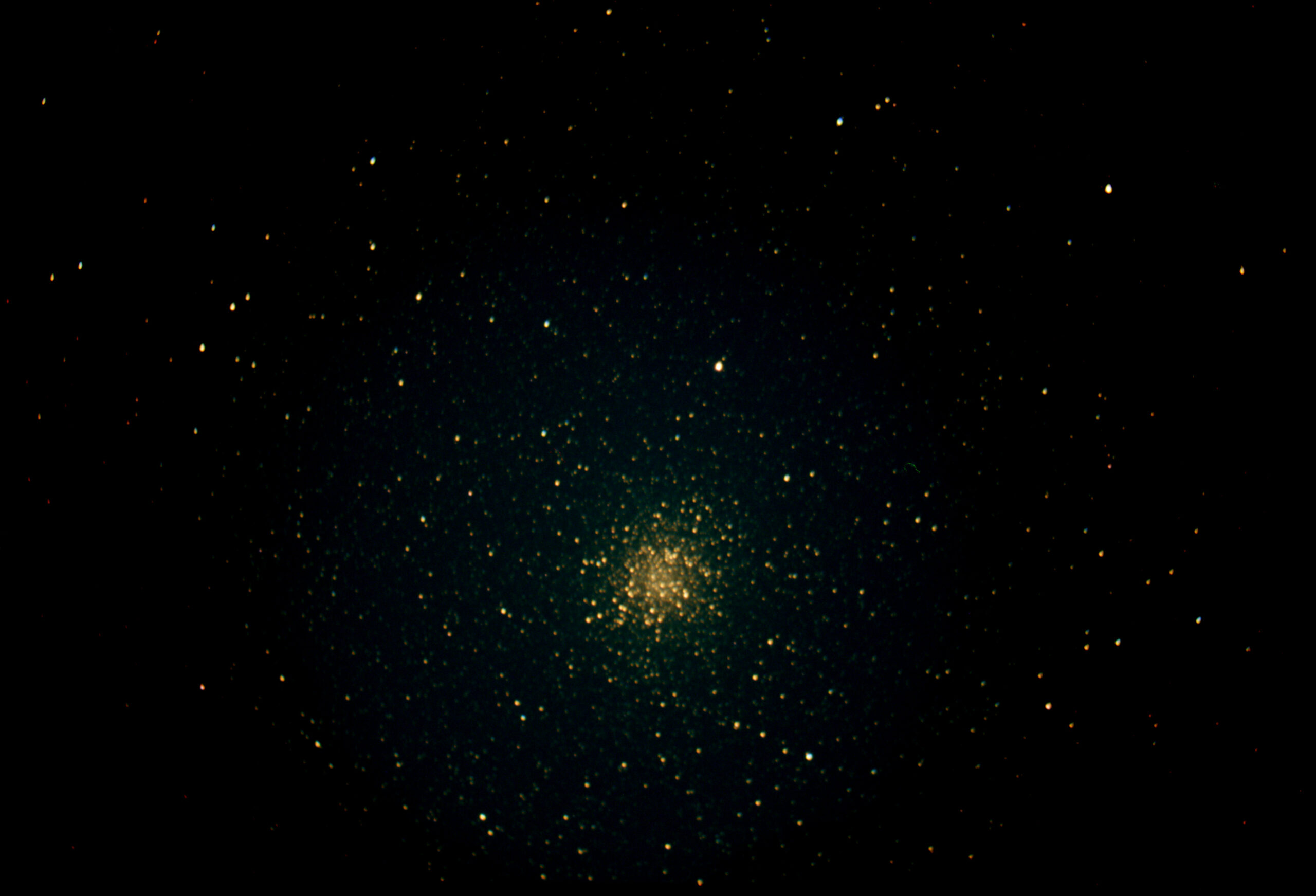| Name | Great Sagittarius Cluster |
| Designation(s) | M22, NGC 6656 |
| Object Type(s) | Globular Cluster |
| Relevant Catalog(s) | All (Chron), Messier, NGC |
| Obs. Lat/Long | 42° 17', 073° 57' |
| Constellation | Sagittarius |
| Date and Time Observed | 2022-11-08 16:20:00 |
| Instrument | Evo 9.25" w/f6.3 reducer-approx 1,500mm FL |
| Camera | ASI294mc-Pro |
| Image Details | Up is 343.3 degrees E of N. Total integration time was 6m 16s. Exposures 4s@385g, UV/IR Cut Filter. Darks and flats. No guiding.. |
| Description | This is the first Globular Cluster of any description noted in the astronomical literature, discovered by Abraham Ihle in 1665. It was cataloged by Messier on June 5, 1764. Messier records, "This nebula is round, it doesn't contain any star, & one can see it very well in an ordinary telescope of 3.5-foot [FL]." <--> M22 is ranked number 1 and 2 among all Messier GCs for brightness and size, respectively. This is also, for me personally, the oldest EAA observation in this list, captured 2 weeks after I successfully connected my camera to SharpCap running in a laptop and captured a snapshot of Jupiter. I have only a vague recollection of this observation. I was using 4s exposures at 285 gain observing on an unstable deck. I no longer have access to the original imagery so did not attempt to re-process. And it's clear that this capture doesn't do M22 justice. However, I enjoy preserving it as a milestone in my personal observing history. |
| Catalog Links | |
